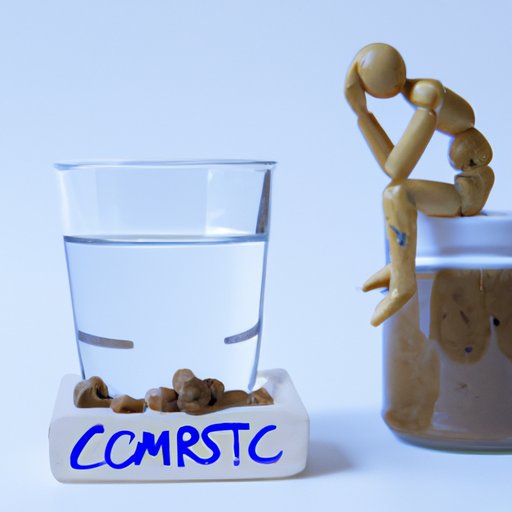Introduction
Traveling is an adventure that can open new doors, introduce us to different cultures, and help us create wonderful memories. But the reality is that for many, the excitement of traveling can be marred by uncomfortable digestive issues like constipation.
Constipation is a common digestive disorder characterized by infrequent or difficult bowel movements. It occurs when feces move too slowly through the digestive tract, making it difficult to pass. That can lead to abdominal discomfort, bloating, and painful straining during bowel movements.
There are several causes of constipation, and some of them are specific to travel. In this article, we’ll explore the reasons why travelers often suffer from constipation and what can be done to both prevent and relieve it.
Stress and Diet Changes
When you travel, it’s normal to experience stress. Whether it’s the stress of planning, packing, or dealing with transportation delays, all of these factors can have a major impact on your digestion and bowel health. According to a study published in the journal Gut, psychological stress has been linked to slower digestion and increased risk of constipation.
In addition to stress, changing up your diet can cause constipation. Eating foods that are high in fat and low in fiber can slow down digestion and make it difficult to pass stool. This is especially true if you’re eating out at restaurants and indulging in unfamiliar cuisines.
Dehydration
Traveling often means spending more time outdoors in the sun and heat, which can lead to dehydration. Dehydration can interfere with normal bowel movements by making stools dry and hard. That makes it difficult for them to pass through the intestines, leading to constipation.
Fortunately, there are ways to stay hydrated while traveling. Drinking plenty of water is key, as well as avoiding drinks that contain caffeine or alcohol. Adding electrolytes to your water can also help you stay hydrated and reduce the risk of constipation.
Strategies for Avoiding Constipation
The best way to deal with constipation is to prevent it in the first place. Here are some strategies for avoiding constipation while traveling:
Pre-Travel Preparations
Before you embark on your trip, it’s important to prepare your body for the journey ahead. Start by eating a balanced diet that’s high in fiber and low in fat. Make sure to drink plenty of water and exercise regularly. These steps will help ensure that your digestive system is functioning optimally before you hit the road.
During the Trip
Once you’re on the go, it’s important to take steps to keep your bowels moving. Eat a healthy diet that includes plenty of fruits, vegetables, whole grains, and lean proteins. Drink at least eight glasses of water a day and limit your consumption of caffeine and alcohol. If possible, try to get some physical activity every day.
Post-Travel Strategies
Once you return home, it’s important to give your body time to adjust back to its regular routine. Stick to a healthy diet and continue drinking plenty of water. If necessary, take a mild laxative to help get your bowels back on track.
Tips for Relieving Constipation Symptoms
If you’re already suffering from constipation symptoms, there are some steps you can take to relieve them. Here are some tips for relieving constipation:
Lifestyle Changes
Making some lifestyle changes can help relieve constipation symptoms. For example, getting more exercise can help stimulate the bowels and encourage regular bowel movements. Eating a diet that’s high in fiber and drinking plenty of fluids can also help.
Over-the-Counter Medications
If lifestyle changes aren’t enough, over-the-counter medications can help. Stool softeners and laxatives can help soften stools, making them easier to pass. Make sure to follow the instructions on the package and only use them for a short period of time.
Natural Remedies
There are also some natural remedies that can help alleviate constipation symptoms. Prunes and other high-fiber fruits are known to be effective natural laxatives. Herbal teas such as peppermint, chamomile, and ginger can also be beneficial.
Conclusion
Traveling can be a wonderful experience, but it can also lead to uncomfortable digestive issues like constipation. There are several factors that can contribute to constipation when traveling, including stress, diet changes, and dehydration. Fortunately, there are steps you can take to both prevent and relieve constipation while traveling. By following a healthy diet, drinking plenty of fluids, and taking steps to manage stress, you can enjoy your travels without worrying about constipation.
(Note: Is this article not meeting your expectations? Do you have knowledge or insights to share? Unlock new opportunities and expand your reach by joining our authors team. Click Registration to join us and share your expertise with our readers.)
